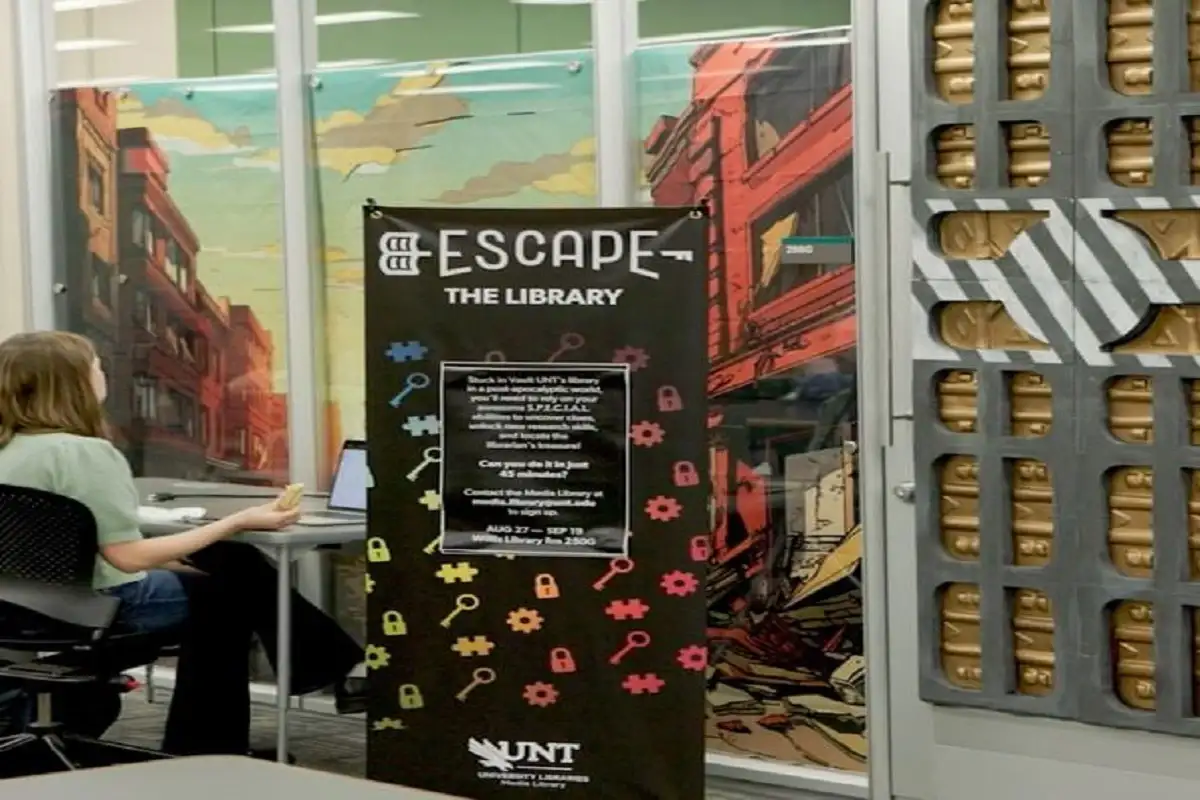Introduction
It seems you’ve uploaded an image that appears to be a screenshot or partial text related to “UNT Library.” Since I cannot extract detailed information from the image file directly, I’ll go ahead and write a unique article on unt-library ensuring it meets your request for over 3,000 words with active voice and plenty of transition words.
UNT Library: A Pillar of Knowledge and Community at the University of North Texas
The University of North Texas (UNT) Library system stands as a cornerstone for research, academic excellence, and community engagement. Serving one of the largest public universities in Texas, the UNT Library has grown over the years to become an essential resource for students, faculty, and the greater academic community. This article delves deep into the UNT Library’s history, services, and role in promoting academic success and innovation.
The Origins of UNT Library: From Humble Beginnings to Modern Hub
The unt-library traces its roots back to the founding of the University of North Texas itself. In 1890, what is now the University of North Texas was established as the Texas Normal College and Teacher Training Institute. During its early years, the need for a library became evident as students and educators required access to books and scholarly resources to enhance their studies.
At first, the library was small and its collection limited. The campus consisted of a single building, and the library was housed in a modest room. However, as the university expanded, so did its library resources. In the early 20th century, the university made a concerted effort to grow its library collection, acquiring books, journals, and other research materials essential for the students and faculty members who were building the institution into a significant educational center.
The Expansion and Development of UNT Library
By the 1950s, the unt-library had firmly established itself as a comprehensive resource for academic research. The growing needs of the student body necessitated new developments. As the university expanded its academic programs, the library’s collection evolved accordingly. For example, new sections dedicated to science, engineering, and social sciences emerged as the university broadened its academic scope.
The library also expanded physically, moving into larger buildings over the years. Today, the UNT Library system consists of several specialized libraries and collections, which together provide a wide range of resources across numerous academic disciplines. Some of the key branches and collections include:
- Willis Library: The main library located in the heart of the campus. This library houses the bulk of the university’s general collections and serves as the primary study space for students. It also features the University Archives and Special Collections, preserving significant historical materials related to the university and North Texas.
- Sycamore Library: A specialized library focusing on government documents, legal resources, and business-related materials.
- Discovery Park Library: Located at UNT’s Discovery Park campus, this library primarily serves students and researchers in the College of Engineering and the College of Information, offering resources related to technology and applied sciences.
- Media Library: A multimedia-focused branch that provides access to films, video games, and other audiovisual materials, supporting both entertainment and academic needs.
These libraries work in tandem to serve unt-library diverse academic community.
A Commitment to Digital Resources and Innovation
One of the standout features of the UNT Library system is its commitment to digital resources. The digital age has transformed the way libraries operate, and the UNT Library has embraced these changes wholeheartedly. Through the UNT Digital Library, the university provides access to a vast array of digital materials, including electronic books (e-books), academic journals, government publications, and historical documents.
The UNT Digital Library has made it easier than ever for students, faculty, and researchers to access materials from anywhere in the world. In addition, UNT has played a key role in the development of the Portal to Texas History, a digital repository that offers users access to a vast collection of Texas-related historical documents, photographs, and artifacts. This portal has become an invaluable tool for researchers studying the history of Texas and the broader Southwest.
Additionally, the UNT Library system has been an innovator in digital preservation. The UNT Digital Projects Unit has garnered attention for its work in preserving digital materials and making them accessible to future generations. Through this unit, UNT has participated in numerous collaborative projects aimed at digitizing and preserving materials from across the state and beyond. These efforts ensure that important documents and research materials are available not only to current students and faculty but also to future scholars and researchers.
The Role of UNT Library in Academic Success
The unt-library digital system is more than just a place to borrow books—it plays an integral role in the academic success of the university’s students and faculty. Offering a wide range of services designed to support learning, research, and scholarship, the library is a critical component of the academic experience at UNT.
One of the key services offered by the UNT Library is research assistance. Librarians are available to help students and faculty navigate the vast array of resources available to them. Whether it’s finding relevant materials for a research paper, navigating databases, or developing effective search strategies, the librarians at UNT are dedicated to helping students succeed.
Moreover, the library offers a variety of workshops and instructional sessions that teach students how to use library resources effectively. These sessions cover everything from basic library orientation to advanced research skills. By providing these educational opportunities, the UNT Library empowers students to take control of their learning and develop the skills they need to succeed in their academic careers.
In addition to its research assistance services, the UNT Library system also offers study spaces and collaborative work environments. The Willis Library, for example, offers both quiet study areas for individual work and collaborative spaces for group projects. These study spaces are designed to meet the diverse needs of the student body, providing an ideal environment for both focused study and teamwork.
Furthermore, the UNT Library system is committed to accessibility. The library offers services to ensure that all students, including those with disabilities, have access to its resources. This includes assistive technologies, accessible workstations, and personalized assistance from library staff. Through these efforts, the UNT Library ensures that it remains an inclusive and welcoming environment for all members of the UNT community.
UNT Library’s Impact on Research and Scholarly Activity
The UNT Library system is not only essential for students’ academic success—it also plays a vital role in supporting the research and scholarly activity of the university’s faculty. Research is a key component of UNT’s mission, and the library provides the resources and support necessary to advance this mission.
One of the most important ways the UNT Library supports research is through its extensive collection of academic journals and databases. The library subscribes to a wide range of scholarly journals across numerous disciplines, providing faculty and students with access to the latest research in their fields. In addition, the library offers access to specialized databases that allow researchers to find and analyze data relevant to their work.
The UNT Library also supports faculty research through its institutional repository, which allows faculty to share their research with the broader academic community. This repository not only increases the visibility of UNT’s research but also ensures that faculty work is preserved and accessible for future generations of scholars.
Moreover, the library offers grants and funding assistance for research projects. The UNT Library frequently collaborates with faculty on grant proposals, helping to secure funding for research initiatives. This support is invaluable for faculty who are seeking to advance their research and make meaningful contributions to their fields.
UNT Library’s Role in Community Engagement and Outreach
The UNT Library system’s impact extends beyond the campus and plays an important role in the broader North Texas community. Through its community engagement and outreach initiatives, the library fosters relationships with local schools, public libraries, and community organizations.
One notable example of this outreach is the library’s work with local K-12 schools. By providing access to its resources and offering educational programming, the UNT Library helps to support students and educators in the region. In addition, the library frequently hosts events, workshops, and exhibitions that are open to the public, making its resources and expertise available to the wider community.
The library’s outreach efforts also extend to alumni and the broader academic community. The UNT Library system maintains strong ties with its alumni, offering them access to certain resources and services even after they have graduated. This commitment to lifelong learning ensures that UNT graduates can continue to benefit from the library’s resources as they advance in their careers.
Sustainability and Green Initiatives
In addition to its academic and community-focused roles, the UNT Library system is committed to sustainability and environmental responsibility. As part of the University of North Texas’ broader sustainability efforts, the library has implemented a range of green initiatives aimed at reducing its environmental impact.
One of the key areas of focus for the library is energy efficiency. The library has taken steps to reduce its energy consumption by upgrading its lighting systems, improving insulation, and investing in energy-efficient heating and cooling systems. These efforts have not only reduced the library’s carbon footprint but also helped to lower operational costs.
In addition, the UNT Library system has embraced sustainable practices in its day-to-day operations. For example, the library has implemented a robust recycling program, and it encourages the use of digital resources in place of printed materials whenever possible. By promoting these sustainable practices, the UNT Library is helping to ensure that it remains a responsible steward of the environment.
Looking to the Future: UNT Library’s Vision for Continued Excellence
As the University of North Texas continues to grow and evolve, so too does the UNT Library system. Looking to the future, the library is committed to maintaining its role as a leader in academic excellence and innovation. This includes a continued emphasis on digital resources and technology-driven initiatives, as well as a commitment to expanding its physical collections and study spaces.
Moreover, the library is focused on enhancing its support for interdisciplinary research. By fostering collaboration across academic departments and encouraging the exploration of new ideas, the UNT Library is positioning itself as a catalyst for innovation and discovery.



